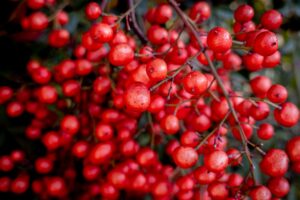Berries have been a cornerstone of human diets for thousands of years. However, their biological characteristics in terms of cancer suppression and prevention have just lately been discovered. Several original studies have linked the involvement of anthocyanin pigments in berries to these chemopreventive effects.
This evaluation determined that the trustworthiness of available research on human cancer risk is limited since it is mostly in vitro and lacks solid evidence for applicability in humans. Future studies should focus on understanding how berry components affect cancer in people, as well as why berry compounds are not being incorporated into successful cancer therapy strategies. Cancer is one of the main causes of death globally.

Benefits of Berries
Berries have been a part of the human diet for many years, but their potential health advantages have only lately come to light. Currently, there is a true consensus among most people, both academic and non-academic, that berries are beneficial to one’s health due to their phytochemical content.
Berry includes a number of phytochemicals associated with excellent health, according to previous research. Anthocyanins, flavonols, flavonoids, and proanthocyanidins are examples of phytochemicals. These phytochemicals are bioactive and hence have a variety of biological features such as anti-carcinogenicity, pro, antioxidants, and cancer prevention.
Consuming Berries Lower the Risk of Cancer
To begin, it is critical to understand what cancer is and the potential cancer prevention mechanisms connected with berry eating. The National Cancer Institute defines cancer as “diseases in which aberrant cells proliferate without control and have the ability to infect other organs.” It is generally understood that a wide range of variables directly cause cancer and/or increase the chance of acquiring cancer and its related health problems.
Understanding how berries and their components directly increase cancer risk is difficult. In the last two decades, a variety of plausible mechanisms for cancer prevention or lowering the chance of acquiring a malignant tumor have been uncovered. Increased study into berries and cancer has resulted in the discovery of a variety of positive mechanisms centered on vitamins, minerals, fiber, and berry bioactive.
What Do The Studies Say?
According to epidemiological research, eating blueberries as part of a healthy balanced diet acts as an inhibitory factor, lowering the chance of developing certain forms of human malignancies. The blueberry, which belongs to the Vaccinium genus, is an unusually rich source of antioxidant phytochemicals in the human diet. 6 Non-essential nutrients contained mostly in the chemical structure of fruits and vegetables are known as phytochemicals.
Blueberries, in particular, have a high concentration of antioxidant-acting phytochemicals, which is why they are sometimes referred to as antioxidant superfruits. Flavonoids (flavonols, anthocyanins, and flavonols), phenolic acids, tannins (proanthocyanidins, ellagitannins, and gallotannins), sterols, stilbenes (pterostilbene), and triterpenes are all found in blueberries.
CRANBERRY

For many years, research into the effect of cranberry intake and the accompanying anti-cancer activity has been guided by findings indicating that cranberries have high antioxidant properties. Recent research, however, has begun to fully grasp how these antioxidants really limit cancer cell proliferation, as well as their function in preventing cancer cells from growing in the first place. The cranberry (Vaccinium macrocarpon), which was originally native to North America, has been the subject of several study studies aiming at better understanding its antioxidant and anti-cancer effects.
Duthie et al.21, for example, concluded that the participants who ingested the cranberry juice did not have an increase in antioxidant enzyme activity or a change in their lipid profile. As a result, Duthie et al.21 concluded that anthocyanin chemicals found in cranberries in proportions taken in the human diet may not be as potent chemopreventative agents as previously hypothesized. Furthermore, there are few studies that suggest berry anthocyanins’ capacity to prevent and diminish the onset of carcinogenesis and oxidative stress in a person.
- What other fruits do you consume regularly for their health benefits?
If you enjoyed this blog post, share it with your friends!
